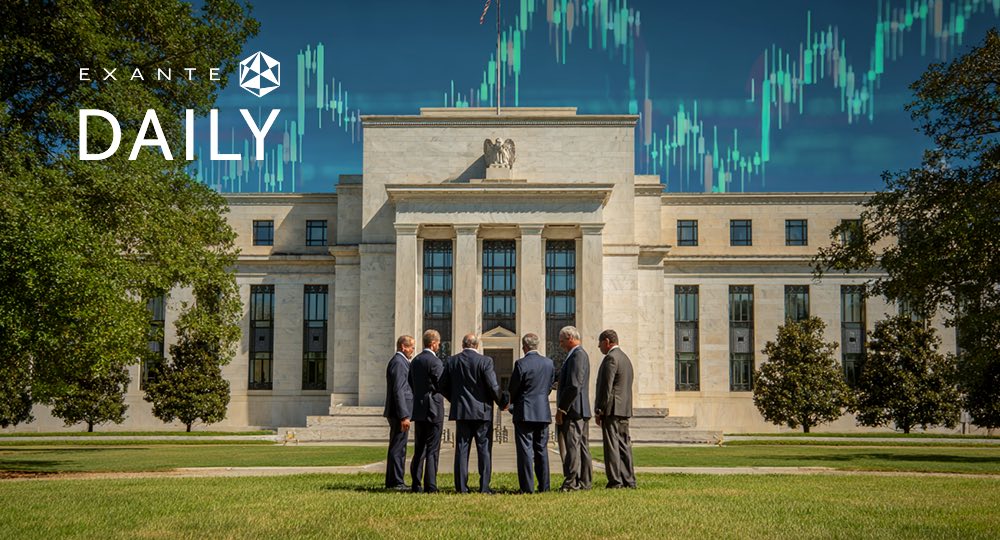Worries over profit margins, the threat of recession, a hawkish Fed, the ongoing crisis in Ukraine, and continuing knots in global supply chains have made for choppy markets this week.
- Stock markets down
- Consumers in flight mode
- Flashing red for recession
That sinking feeling. Global markets remained down this week as investors decided that the cons outweigh the pros for growth stocks. The S&P 500 is down about 5.5% MTD (and over 18% YTD), the tech heavy Nasdaq is down over 7% MTD (over 27% YTD), and the Dow Jones is down over 13% YTD. In Europe: the pan-European Stoxx 600 is down over 5% this month, the DAX is down over 1.5% MTD (over 12.5% YTD), the CAC40 is down over 4% MTD and down over 12% YTD, the IBEX35 is down about 2.2% MTD and over 3.5% YTD%, the FTSE MIB is down almost 1% MTD and down over 12% YTD, and the FTSE100 is down almost 3.5% MTD (about 1.3% YTD). The MSCI World Index is now down about 4.5% MTD and over 17% YTD.
Is it better to be the turtle or the hare? Fed Chair Jerome Powell vowed the Fed will do whatever it takes to fight inflation, but there may be a more measured pace ahead according to Chicago Federal Reserve Bank President Charles Evans and Philadelphia Fed bank President Patrick Harkerafter. Markets have already priced in two 50 bps rate rises for the June and July meetings. Investors are becoming more bearish, with growth stocks like Amazon and tech stocks like Apple particularly hard hit as inflation outpaces wages. Retail stocks like Walmart declined this week as the impact of eroding consumer purchasing power becomes more apparent.
It is only going to get worse. In the UK recession signals are moving from amber to red as UK inflation hit 9% in April, up from March’s 7% figure, as higher energy and electricity prices hit all sectors of the economy, adding to pressure for action from the government and central bank.
From field to fork, cost pressures rise. Globally, farmers are seeing the worst cases of inflation, e.g., in the UK it is averaging over 30%, due to increases in fuel, feed and fertiliser following on from the beginning of the Russian-Ukrainian crisis and the sudden heat waves in India. This spells bad news for consumers and may hit large scale global agribusinesses like Bunge and ADM and Fast Moving Consumer Good companies (FMCGs) like Nestle and Kraft Heinz.
Some relief in China as Covid cases slow. But rising unemployment in the tech and construction sectors is hitting retail sales and growth. Retail sales were down 11.1% in April and factory production down 2.9%. Export growth is at a 2 year low of 3.9%, threatening the earnings of companies around the world.
Data to look out for this coming week
It’s PMI week next week: keep an eye out for S&P global manufacturing, services and composite PMIs in the UK, Europe, and the US as these will give more clues as to whether we are globally truly recession bound.
- In Europe there’s a speech by Philip Lane, the ECB’s chief economist who may provide some more insight as to just how fast and far the ECB will go in tightening policy. There’s also GDP data from Germany, Europe’s largest economy. If Germany isn’t growing, the rest of Europe is in trouble.
- In the US there is durable goods data and non-defense capital orders to tell us if businesses are investing and if recession fears are overblown.And all eyes will be on the FOMC minutes and GDP data released later in the week to gauge just how fast rate rises may
- In the UK there is consumer confidence and retail sales data which will reveal just how sour the outlook is for the economy the IMF said is likely to be the worst hit among the G7.
Also keep an eye out for the People’s Bank of China interest rate decision: if China continues to slow, the economies around it will too.
And finally, the World Economic Forum is back live in Davos from Sunday. Expect to hear lots of noise about paradigm shifts and businesses and markets having to adjust to new geopolitical realities.
DISCLAIMER: While every effort has been made to verify the accuracy of this information, EXT Ltd. (hereafter known as “EXANTE”) cannot accept any responsibility or liability for reliance by any person on this publication or any of the information, opinions, or conclusions contained in this publication. The findings and views expressed in this publication do not necessarily reflect the views of EXANTE. Any action taken upon the information contained in this publication is strictly at your own risk. EXANTE will not be liable for any loss or damage in connection with this publication.
Questo articolo viene fornito all'utente soltanto a scopo informativo e non deve essere considerato come un'offerta o una sollecitazione di un'offerta di acquisto o di vendita di investimenti o servizi correlati che possono essere qui menzionati.






